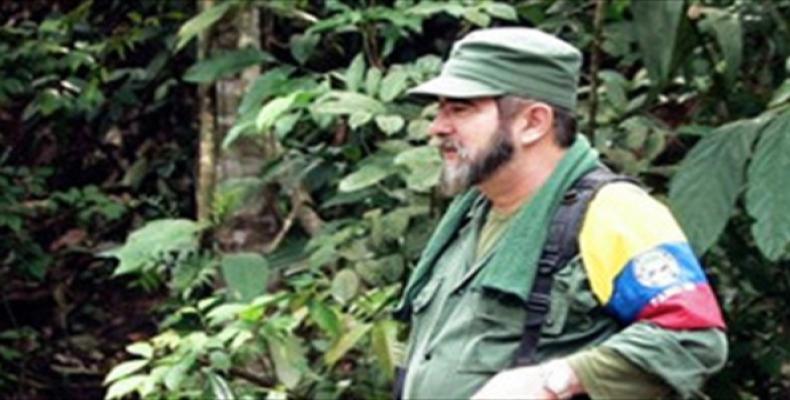Bogotá, August 17 (teleSUR-RHC)-- The leader of guerrilla group Revolutionary Armed Forces of Colombia (FARC) accused the Colombian government on Sunday of failing to honor a promise to not bomb the militants’ camps.
In a post on the FARC’s official website, Rodrigo Londoño, alias “Timochenko,” said that the Marxist group had been attacked twice in Putumayo, an area on the Ecuadorean border.
“After the suspension ordered by President Juan Manuel Santos, they bombed us on July 27 in the Huitoto path of Putumayo, and on Aug. 4 on the Dios Peña path in the same area. Also, they haven’t talked about a series of land provocations against our units in differents regions of the country. Unlike us, the government has once again not held its word,” he wrote.
Last month, President Santos pledged to “de-escalate” military action against the guerrillas if the rebels respect a unilateral ceasefire. The government's lead negotiator at peace talks said the federal government was committed to building trust towards a bilateral cease-fire.
However, Timochenko noted that despite the peace talks that have been developing in Cuba since 2012, the government’s increased military activity is sharply contrasted by its public declarations of its desire to end the conflict.
“The president hopes that by Christmas the toughest points, regarding justice and the end of the conflict, will be defined, and so it implants the idea that a Final Agreement is near. It is not up to me to contradict (the government), if only it was,” Timochenko wrote. “But it is easy to see that despite so much optimism, the Colombian state continues to prepare itself and equip itself for war. It has proposed to increase the military budget while the resources for the countryside shrink at an alarming rate.”
So far, the peace talks have led to partial agreements on three of the five agenda points, including land reform, an end to the illegal drugs trade, and political participation for left-wing guerrillas. Discussions however, regarding victim reparations and the demobilization of combatants are ongoing and remain unresolved.


